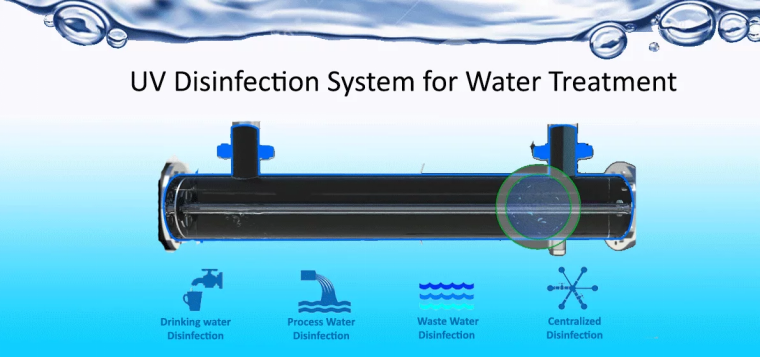Water is essential for life, but not all water sources are safe to drink. Contaminants such as bacteria, viruses, and harmful chemicals can pose serious health risks. As a result, investing in a UV water purifier has become a necessity for households and businesses alike. With the right water purifier equipment, you can ensure that your water is safe, clean, and free from harmful microorganisms.
In this comprehensive guide, we will explore how UV water purifiers work, their advantages over other purification methods, the different types of water purifier machines, and why they are a must-have for any home or business.
What is a UV Water Purifier?
A UV water purifier is a purification system that uses ultraviolet (UV) light to eliminate harmful microorganisms from water. The UV light disrupts the DNA of bacteria, viruses, and other pathogens, rendering them harmless and preventing them from reproducing. Unlike other water purification methods, a UV purifier does not add chemicals or alter the taste of water.
How Does a UV Water Purifier Work?
1.Pre-Filtration: Before water enters the UV water purifier, it passes through a pre-filtration system that removes sediments, dirt, and larger particles.
2.UV Disinfection Chamber: The water then flows through a chamber where a UV lamp emits ultraviolet rays at a specific wavelength (typically 254 nm). These rays penetrate the cell walls of bacteria and viruses, neutralizing them instantly.
3.Final Filtration (Optional): Some advanced water purifier machines incorporate additional filtration, such as activated carbon filters, to remove chlorine, odors, and organic compounds.
Advantages of UV Water Purification

1. Highly Effective Against Microorganisms
A UV water purifier is capable of destroying up to 99.99% of harmful bacteria, viruses, and parasites. Unlike chlorine treatment, which some microorganisms can resist, UV purification is effective against even the most resilient pathogens.
2. Chemical-Free Process
UV purification does not involve any chemicals, making it a safer and more environmentally friendly option. Unlike chlorine, which can leave harmful byproducts, UV treatment keeps water pure and natural.
3. Preserves Water Taste and Odor
Since no chemicals are added, a UV water purifier does not alter the taste, color, or odor of water. This makes it an excellent choice for those who prefer fresh and natural-tasting drinking water.
4. Low Maintenance and Cost-Effective
The maintenance of a UV purifier is minimal. The primary upkeep involves replacing the UV lamp annually and cleaning the quartz sleeve periodically. Compared to other filtration methods, it is a cost-effective solution in the long run.
5. Eco-Friendly
Unlike bottled water, which generates plastic waste, a UV water purifier is a sustainable option that reduces environmental impact. It eliminates the need for plastic bottles while ensuring safe drinking water at all times.
Types of Water Purifier Equipment
There are various types of water purifier machines, each designed for specific needs. Below are some of the most common types:
1. UV Water Purifiers
These purifiers use ultraviolet light to disinfect water. They are ideal for treating microbiological contamination and are commonly used in homes, schools, offices, and hospitals.
2. Reverse Osmosis (RO) Water Purifiers
RO systems use a semi-permeable membrane to remove dissolved salts, heavy metals, and other impurities. Some models combine UV water purifier technology with RO for enhanced purification.
3. Gravity-Based Water Purifiers
These purifiers do not require electricity and use activated carbon or ceramic filters to remove sediments and bacteria. They are suitable for areas with limited power supply.
4. Activated Carbon Filters
These filters absorb chlorine, volatile organic compounds (VOCs), and bad odors, improving the taste and quality of drinking water.
5. Ion Exchange Water Softeners
Used mainly for treating hard water, ion exchange systems replace calcium and magnesium ions with sodium ions to prevent scale buildup in pipes and appliances.
Choosing the Right Water Purifier Machine
When selecting a water purifier machine, consider the following factors:
1. Water Quality
Test your water supply to determine the level of contamination. If your water contains bacteria and viruses, a UV water purifier is the best option. If it has high levels of dissolved salts, an RO system may be more suitable.
2. Flow Rate and Capacity
Different water purifier machines have varying flow rates and capacities. Ensure that the system you choose meets the water consumption needs of your household or business.
3. Maintenance Requirements
Opt for a purifier with minimal maintenance needs. UV systems generally require fewer replacements compared to RO systems.
4. Installation Space
Check the available space for installation. Wall-mounted or under-sink purifiers are great for small spaces, while whole-house systems require more room.
5. Brand and Certification
Choose a reputable brand that offers certified purification standards. Certified systems ensure high-quality purification and long-term reliability.
Conclusion
Investing in a UV water purifier or any other water purifier equipment is a crucial step toward ensuring safe and clean drinking water. With their efficiency, low maintenance, and eco-friendly benefits, UV water purifiers stand out as one of the best choices for modern households and businesses. By choosing the right water purifier machine, you can protect your health and enjoy pure, fresh water every day.
----------------------------------------------------------------------------------
SANAKY VIETNAM., CO LTD- Manufacturer of Power, Distribution and Dry-type Transformer as well as RO Water Purifier, Chest Freezer - Upright Cooler, ...
☎ Hotline: (+84) 986 484 544
? hank@sanaky-vn.com
? www.sanaky-vn.com
 Vietnamese
Vietnamese  English
English  Chinese
Chinese  French
French  Spanish
Spanish  Russian
Russian  Arabic
Arabic  Portuguese
Portuguese